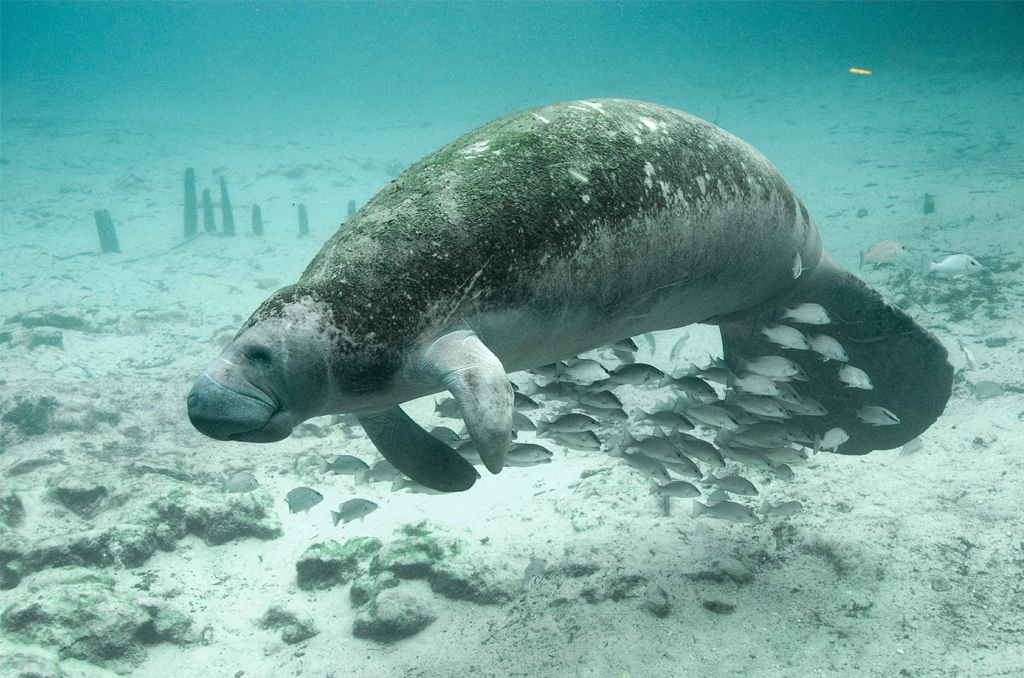Courtesy: Image by PublicDomainImages from Pixabay
According to a recent Florida Fish and Wildlife Conservation Commission report, Florida’s manatee population is facing a sharp decline that could break historic records.
Florida’s manatees, “sea cows” as they are called, are dying off at unprecedented rates in 2021, and experts believe the cause extends further beyond the normal culprit of motorized water vehicles.
“If this continues through the rest of the year, this is going to be one of the highest mortality years ever,” said Florida Atlantic University marine biologist and oceanography Jon Moore.
The report from FWC which spans the first sixth months of the year shows 761 recorded manatee deaths so far in 2021, leaving researchers to believe the rapid rate is indicative of a potentially record-breaking year for the “threatened” species. For comparison purposes, the record number of logged manatee deaths was 804 for the entire year in 2018.
Moore and other scientists have reason to believe the manatee’s sustained loss of key food and nutrients is the main cause of death for the animals.
“The algal blooms are clouding the water and cutting off light, so the seagrass can’t photosynthesize and sustain themselves,” said Moore.
The main source of food and nutrition for the manatee population is seagrass. With polluted waters and increased algal blooms, seagrass shelves cannot sustain themselves, therefore, creating a spillover effect on the sea cows.
Wastewater contamination from the surrounding areas and nutrient runoff create algae blooms that expose manatees to high-level toxins affecting breathing and forming skin rashes or liver and kidney damage.
Red tide along Florida’s coast is also posing a severe threat to the animal’s food supply.
“River systems and lagoons can absorb these nutrients to a degree, but once you pass a tipping point, we start to get these massive algal blooms,” said Patrick Rose, executive director of nonprofit Save the Manatee Club. “This shows that we need to completely re-examine how we grow and develop sustainably.”
The problem is far from being solved but taking small steps such as cutting carbon emissions can greatly help Florida’s precious sea creatures.
Are you interested in Florida’s nature? For stories like this and much more: Florida Insider is dedicated to educating, entertaining and informing its readers about everything Florida. Easy to read content at the palm of your hands and covering the stories that matter.

William is a South Florida native with professional experience writing at the collegiate and national news outlet level. He loves fishing, playing soccer and watching sports in his spare time and is a fan of all South Florida teams.

